Musk alternatives work better than traditional deer-derived musk because they're sustainable, ethical, and deliver superior performance. You'll find synthetic musks offer consistent scent profiles and longer-lasting fragrances, while plant-based options like ambrette seed provide natural, cruelty-free alternatives. Modern extraction methods and molecular innovations guarantee these alternatives minimize environmental impact while maximizing scent quality. The evolution of musk alternatives has transformed sustainable perfumery in ways you won't want to miss.
The Environmental Cost of Natural Musk
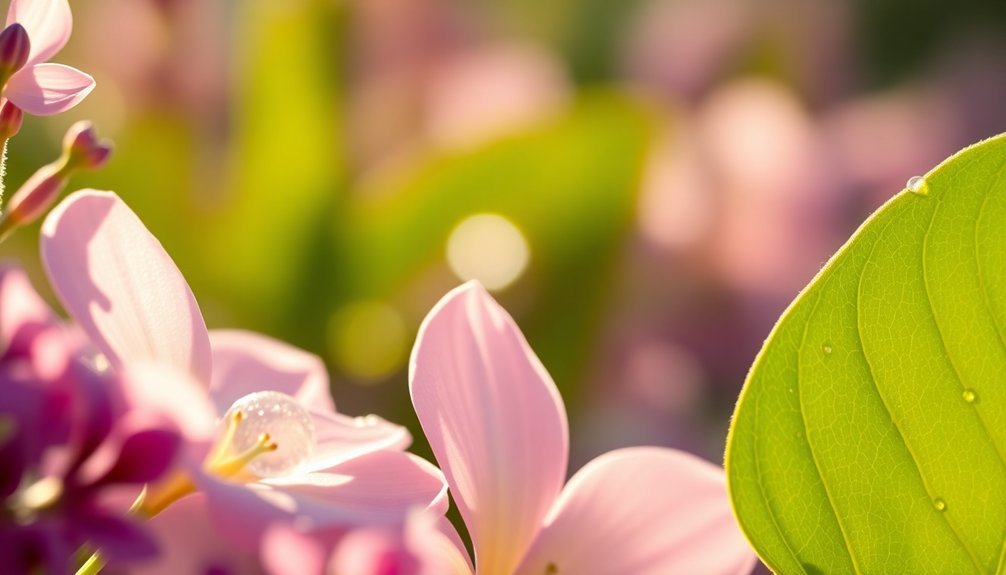
While natural musk has been prized in perfumery for centuries, its extraction comes at a devastating environmental cost. You'll find that obtaining this fragrant substance involves cruel practices that harm or kill musk deer, pushing these species toward extinction.
The process doesn't just affect individual animals – it disrupts entire ecosystems.
When you consider the bigger picture, you're looking at a domino effect of environmental damage. The over-exploitation of musk deer populations throws local ecosystems off balance, leading to biodiversity loss and habitat disruption.
What's more, this resource-intensive practice isn't sustainable, as the source animals are becoming increasingly scarce. Today's regulatory pressures and growing consumer awareness are pushing the industry to find more ethical alternatives that don't compromise our environment or animal welfare. The rise of plant-based alternatives demonstrates the industry's shift toward cruelty-free and sustainable fragrance solutions.
Modern Alternatives to Traditional Musk
You'll find today's perfume industry relying heavily on synthetic musks that deliver consistent, safe, and cost-effective results across countless fragrances.
Plant-based alternatives like ambrette seed and angelica root have emerged as sustainable options, offering unique musky profiles while addressing environmental concerns. Natural fixatives like benzoin and labdanum provide excellent longevity while maintaining an eco-conscious approach to perfumery.
Modern molecular innovations, including compounds like Galaxolide, now provide perfumers precise control over scent profiles while maintaining the sophisticated character of traditional musk.
Synthetic Solutions Excel Today
As natural musk becomes increasingly scarce and ethically problematic, synthetic alternatives have revolutionized the perfume industry. You'll find these modern solutions offer superior consistency, sustainability, and safety compared to their natural counterparts. They've become the industry standard, protecting endangered musk deer while meeting growing consumer demand for cruelty-free fragrances. The base note properties of these synthetics help create lasting, sophisticated scents.
| Feature | Natural Musk | Synthetic Musk |
|---|---|---|
| Sourcing | Deer exploitation | Lab-created |
| Consistency | Highly variable | Precisely controlled |
| Availability | Limited, rare | Abundant, scalable |
Today's synthetic musks deliver predictable fragrance profiles and blend seamlessly with other scent components. You can trust their quality, as they're developed under strict safety regulations and continuous research. This makes them an ideal choice for sustainable, ethical perfumery that doesn't compromise on sophistication or performance.
Plant-Based Musk Evolution
The fragrance industry has embraced plant-based musk alternatives that deliver luxurious, sustainable scents without compromising endangered species.
You'll find nature's musk substitutes in ingredients like ambrette seeds from hibiscus plants, offering a sweet, musky fragrance, and angelica root, providing earthy, herbal notes.
Labdanum, extracted from rockrose, creates warm, amber-like tones, while spikenard contributes woody sweetness to perfume compositions.
These botanical alternatives aren't just ethically superior – they're revolutionizing perfumery.
You're getting innovative extraction methods that enhance their effectiveness, plus the versatility to blend with other natural ingredients.
When you choose fragrances with plant-based musks, you're supporting sustainable practices while enjoying complex scents that rival traditional musk's depth and sensuality.
Plant-Based Musk Compounds
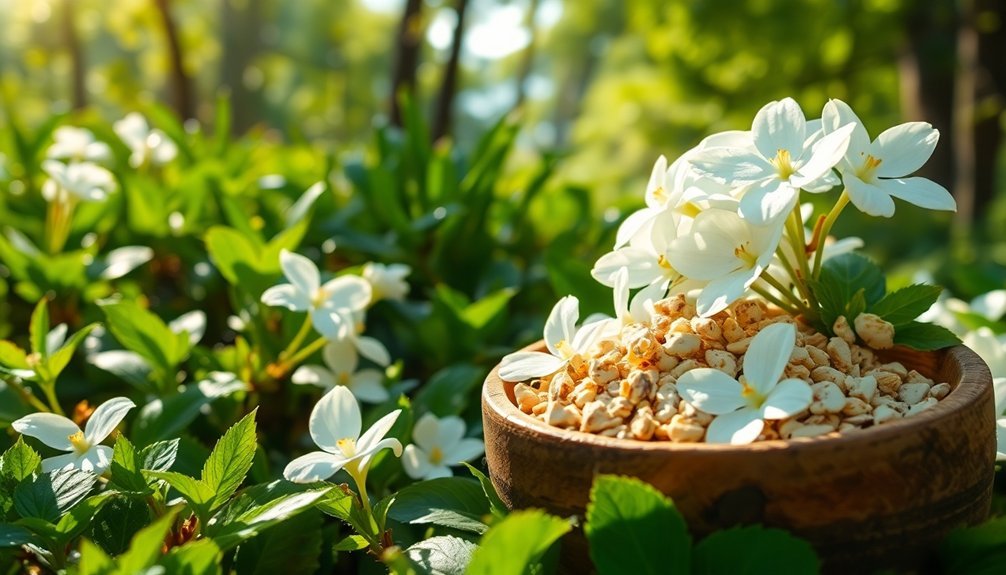
You'll find that plants can naturally produce musk-like compounds through specialized extraction methods, including cold pressing, steam distillation, and solvent extraction.
Nature offers several plants with inherent musk-like properties, such as ambrette seeds and angelica root, which provide sustainable alternatives to traditional animal musk.
These botanical sources yield complex aromatic compounds that closely mimic the warm, earthy characteristics of natural musk while maintaining ethical and environmental standards.
Natural Extraction Methods
Natural musk alternatives from plants offer perfumers sustainable options without compromising quality or authenticity.
You'll find that extractors use specific methods for each botanical source to capture their unique musky compounds. For ambrette seeds, they'll employ solvent extraction to obtain ambrettolide, while angelica root requires careful processing to preserve its cyclopentadecanolactone content.
Modern extraction techniques have revolutionized how we obtain these plant-based musks. You can see this innovation in the use of fractional distillation and carbon black absorption, which guarantee purity in the final product.
When working with galbanum and spikenard, steam distillation proves particularly effective. These methods, combined with careful solvent selection like hexane and heptane, deliver consistent, high-quality musk compounds that rival traditional sources.
Musk-Like Plant Properties
Several plant species produce compounds that closely mimic animal musk's distinctive scent profile, offering sustainable alternatives for modern perfumery.
You'll find ambrette seeds delivering a delicate, sweet aroma with musky undertones, while providing anti-inflammatory benefits and emotional balance through aromatherapy.
Angelica root offers a similar musky sweetness that blends well with other botanicals in complex fragrances.
If you're looking for earthier notes, galbanum and spikenard are excellent choices.
Galbanum adds depth with its herbal, musky character, making it popular in niche perfumery.
Spikenard, though less common in commercial fragrances, contributes warm, woody undertones while carrying the added benefit of traditional Ayurvedic properties.
These plant-based options demonstrate that you don't need animal-derived ingredients to create sophisticated musk scents.
Synthetic Musk Innovation
Since Albert Baur's accidental discovery in 1888, synthetic musk innovation has revolutionized the fragrance industry. You'll find these sophisticated compounds in countless modern perfumes, offering clean, smooth scents without the ethical concerns of animal-derived musks.
Modern alternatives like Galaxolide and Ambroxan provide superior fixative properties while ensuring consistency in your favorite fragrances.
What makes synthetic musks truly remarkable:
- You're supporting cruelty-free practices while enjoying scents that rival natural musk
- You're protecting the environment through sustainable production methods
- You're getting safer, more reliable fragrances that won't irritate your skin
Today's synthetic musks represent the perfect fusion of science and sustainability, with ongoing research focused on developing biodegradable compounds and novel extraction methods to meet your growing demand for ethical products.
Ethical Considerations in Musk Production
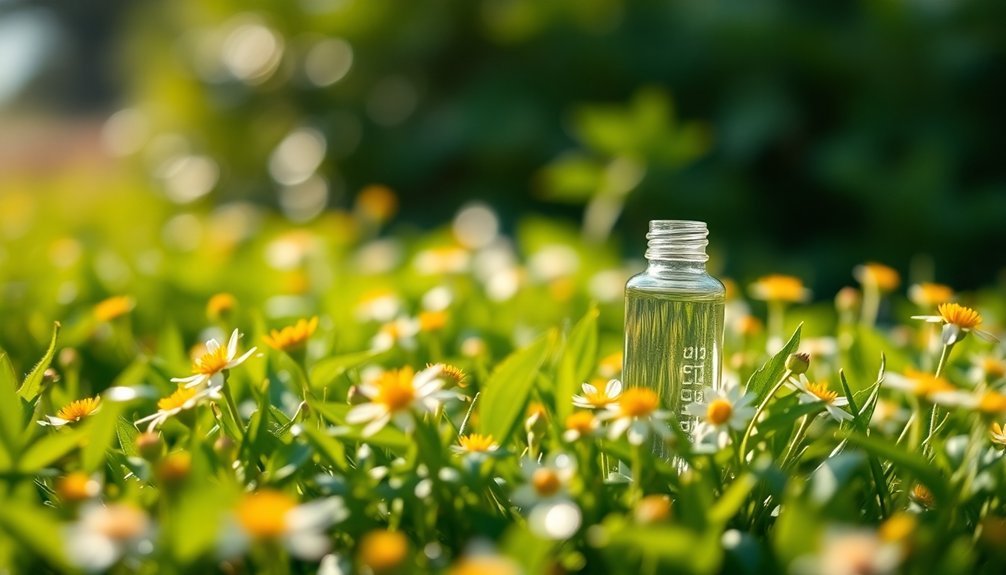
While the fragrance industry has evolved considerably, the production of natural musk raises serious ethical concerns that you can't ignore. The extraction process often inflicts harm on animals, sometimes proving fatal, and contributes to significant environmental damage through unsustainable sourcing practices.
You'll find that synthetic and plant-based alternatives offer a more responsible choice, aligning with both animal welfare and environmental sustainability.
When you're choosing fragrances, it's essential to read labels and support brands that prioritize ethical sourcing and transparent production methods. By opting for cruelty-free alternatives, you're not only protecting animals but also promoting sustainable practices in the perfume industry.
The growing availability of vegan musk alternatives shows how you can enjoy luxury fragrances without compromising your ethical values.
Performance Comparison of Musk Types
Understanding the performance differences between musk types can help you make informed choices about fragrances.
While natural musk offers an intense, animalic scent with excellent fixative properties, it's no longer a viable option due to ethical concerns and legal restrictions.
Synthetic and molecular musks have stepped in to provide consistent, controlled performance with impressive longevity and versatility.
Botanical alternatives deliver a softer, more sustainable option with delicate, sweet undertones.
- You'll find synthetic musks in most modern fragrances because they're reliable, safe, and deliver the staying power you expect.
- You can trust botanical musks when you want a gentler, more natural approach without compromising on performance.
- You're making a responsible choice by selecting molecular musks, which offer sophisticated scent profiles while supporting animal welfare.
Sustainable Sourcing Practices
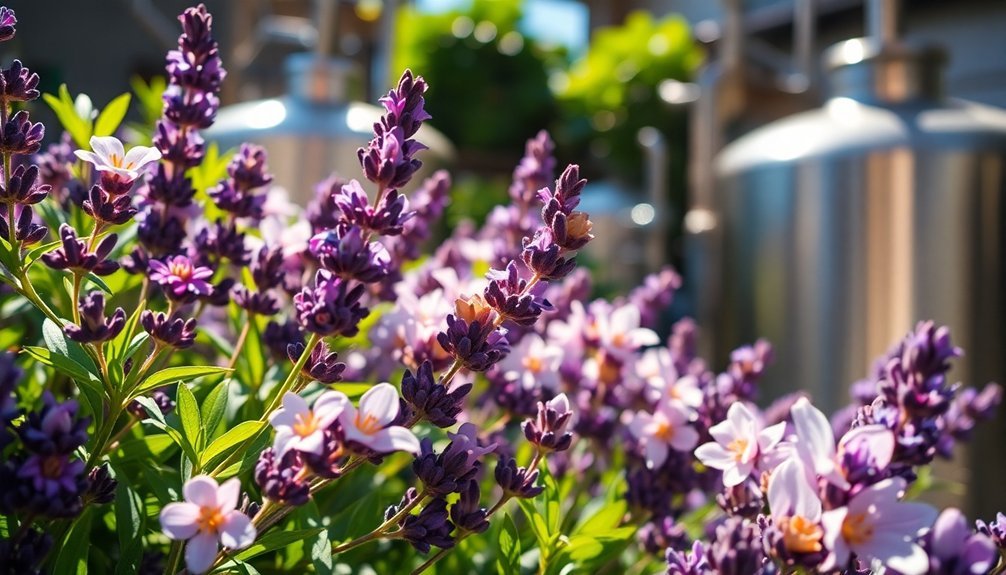
As the fragrance industry evolves, sustainable sourcing practices have become essential for creating environmentally responsible musk alternatives. You'll find that today's leading perfume makers prioritize ethical sourcing through fair-trade partnerships with local communities and sustainable farms that protect biodiversity.
When you choose sustainable musk alternatives, you're supporting eco-friendly extraction methods like steam distillation and solvent-free processes that preserve raw material integrity while minimizing environmental impact.
These perfume manufacturers have embraced renewable energy sources and efficient production methods to reduce their carbon footprint. They've also established transparent supply chains, allowing you to trace the origins of your fragrance ingredients.
Through third-party certifications and rigorous manufacturing standards, you can trust that sustainable musk alternatives uphold both environmental protection and fair labor practices.
The Science Behind Musk Alternatives
Modern perfumery relies heavily on both synthetic and botanical musk alternatives, each created through precise chemical engineering and natural extraction methods.
You'll find that synthetic musks like Galaxolide offer exceptional stability and longevity, while botanical alternatives from ambrette seeds provide delicate, sustainable options.
The science behind these alternatives reveals three compelling reasons why they're revolutionizing the fragrance industry:
- They're meticulously engineered to deliver consistent, controlled scent profiles.
- They combine innovative molecular structures that enhance lasting power.
- They integrate seamlessly with other fragrance components for balanced compositions.
Thanks to advanced chemistry, you can now enjoy sophisticated musk molecules that not only replicate traditional scents but also surpass them regarding sustainability and ethical production.
Frequently Asked Questions
How Long Do Synthetic Musk Alternatives Typically Last on the Skin?
You'll find synthetic musk alternatives can last several days on your skin. They're designed for extended wear, and their chemical stability helps them maintain their scent while resisting breakdown from skin contact.
Can People With Sensitive Skin Safely Use Musk Alternatives?
Yes, you can safely use natural musk alternatives if you have sensitive skin. Plant-based options like ambrette seed and essential oils are gentler, while avoiding synthetic musks that might cause irritation or reactions.
Are Musk Alternatives More Expensive to Produce Than Natural Musk?
No, you'll find synthetic musk alternatives are much cheaper to produce than natural musk. They require simpler chemical processes that can be scaled up efficiently, while natural musk's rarity and extraction complexity drive up costs.
Do Musk Alternatives Interact Differently With Individual Body Chemistry?
Yes, you'll notice synthetic musks maintain a more consistent scent on your skin, while natural musks vary with your body chemistry. Plant-based alternatives fall between these, offering moderate interaction with your personal pH levels.
Can Synthetic Musks Be Used in Organic-Certified Perfumes?
No, you can't use synthetic musks in organic-certified perfumes. They're artificial compounds that violate organic certification standards, which strictly require natural ingredients. You'll need to opt for botanical musk alternatives instead.
In Summary
You'll find that musk alternatives offer superior sustainability without compromising quality. They're not just better for the environment – they're often more consistent, longer-lasting, and ethically sound. Whether you choose plant-based or synthetic options, you're supporting innovation that protects endangered species while delivering exceptional fragrance performance. Make the switch to sustainable musk alternatives, and you'll contribute to a more responsible perfume industry.
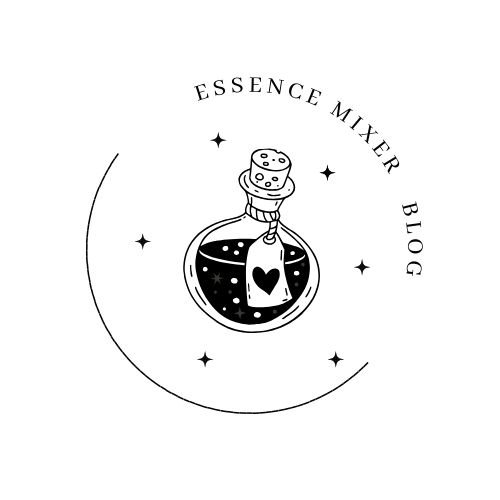
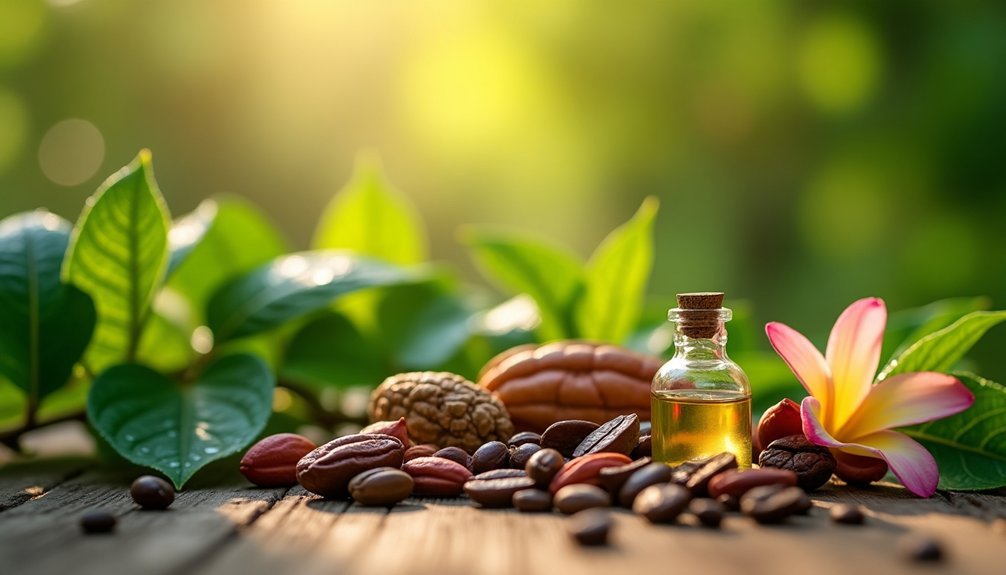



Leave a Reply